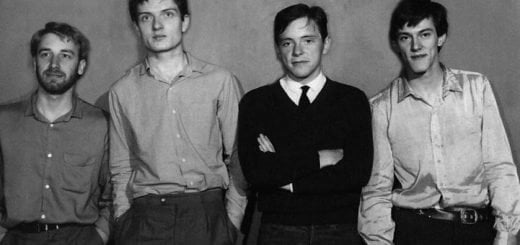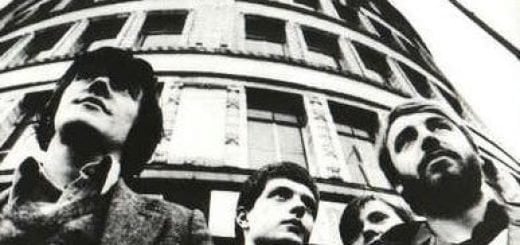Warsaw by Joy Division Lyrics Meaning – Decoding the Cry of Disillusion in a Post-Punk Era
Lyrics
I was there in the back stage
When the light came around
I grew up like a changeling
To win the first time around
I can see all the weakness
I can pick all the faults
Well, I concede all the faith tests
Just to stick in your throats
Three-one-G
Three-one-G
Three-one-G
Hung around in your soundtrack
To mirror all that you’ve done
To find the right side of reason
To kill the three lies for one
I can see all the cold facts
I can see through your eyes
All this talk made no contact
No matter how hard we tried
Three-one-G
Three-one-G
Three-one-G
I can still hear the footsteps
I can see only walls
I slid into your man-traps
With no hearing at all
I just see contradiction
Had to give up the fight
Just to live in the past tense
To make believe you were right
Three-one-G
Three-one-G
Three-one-G
Three, five, oh, one, two, five
The late ’70s and early ’80s bore witness to the birth of a genre that would leave an indelible mark on the music scene. Post-punk, with its brooding aesthetics and counterculture sentiments, became the voice of a disillusioned generation. Nestled within this was Joy Division, a band whose sound painted landscapes of existential dread and emotional turmoil. Their song ‘Warsaw’ pulsates with a raw, unsettling energy that demands analysis.
But ‘Warsaw’ is not just a fragment of sound; it’s a coded manifesto. Digging beneath its frenetic exterior, the lyrics offer a glimpse into a complex entanglement of personal struggles and societal observations. The cryptic nature of frontman Ian Curtis’s words beckons to be unraveled—a path laden with intricate turns and enigmatic signposts.
What’s in a Number: The Beat of ‘Three, Five, Zero, One, Two, Five’
Like an auditory enigma, the song kicks off with a curt and peculiar sequence of numbers, which one may surmise as a reference to the Polish city central to World War II’s ignominious history. However, the numerical repetition, ‘Three, five, zero, one, two, five,’ resonates deeper, acting as a form of dehumanization, a stripping away of identity—reflective perhaps of Curtis’s own feelings of alienation or to those of a war-torn society.
It could symbolize a systematized world, where individuals are reduced to mere cogs within a societal machine. As the song unfolds, this sequence starts feeling like a chant, or a coded message, a means to convey urgency or distress in the face of deindividuation.
The Changeling’s Lament: Deciphering Identity
‘I grew up like a changeling,’ Curtis declares, referencing the mythological creature swapped at birth—a being perpetually out of place, emblematic of his personal narrative as well as the punk generation’s struggle to carve an identity in a conformist world. This line encapsulates a profound sense of alienation intertwined with growth, suggesting an evolution inextricably linked to displacement.
Here, the song delves beyond mere existential grit—it’s a mirror to the youth caught in the tides of shifting cultural paradigms. Joy Division’s narrative voice becomes an embodiment of those who felt disconnected, and in turn, channels a message that is as much about individuation as it is about the universal quest for self.
Trapped within the ‘Man-traps’: The Song’s Hidden Meaning
The later verses, ‘I slid into your man-traps / With no hearing at all,’ speak to the dangers hidden beneath the surface of societal norms and expectations. ‘Man-traps’ here could allude to pitfalls of the human condition, or to more tangible entrapments of the era’s political landscape. Curtis cryptically alludes to a conscious slide into these traps, hinting at a certain resignation to the inevitable.
Interpreting these lines suggests Joy Division’s awareness of conscription into a flawed system, a predestination to chaos that resonated with post-punk’s disillusionment with contemporary society. There exists within ‘Warsaw’ an undercurrent of struggle against, and ultimate surrender to, the trappings of reality—whether personal for Curtis or representative of a broader cultural sentiment.
A Soundtrack to Mirror All: The Charge Against Redundancy
The line, ‘Hung around in your soundtrack / To mirror all that you’ve done,’ carries the thrust of introspection, perhaps an indictment against the cyclical nature of human folly. Joy Division’s bleak but nuanced soundscape can be interpreted as the mirror held up to society’s face—an unflinching gaze at its failures and hypocrisies.
Curtis’s invocation of a ‘soundtrack’ might double as a metaphor for life, where echoes of the past continually resonate in the present. The song itself becomes a lens, through which the listener is coaxed to evaluate their footprint upon the world—with all its dissonances and echoes.
Unforgettable Strains: The Memorable Lines That Define ‘Warsaw’
While ‘Warsaw’ is laden with cryptic poetry, certain lines cut through with sharp resonance. ‘I can see all the weakness / I can pick all the faults,’ emanates a cold, detached observational capacity—perhaps reflective of the scrutiny that Joy Division themselves felt subject to, or a broader critique of judgmental tendencies within society.
Each lyrical phrase in ‘Warsaw’ is meticulously carved to deliver a multidimensional impact. The simplicity and repetition in ‘Three-one-G’ serve both an artistic and symbolic function, presenting a motif that haunts the listener long after the song ends—emblematic of Joy Division’s lasting influence on the musical and cultural landscape.








